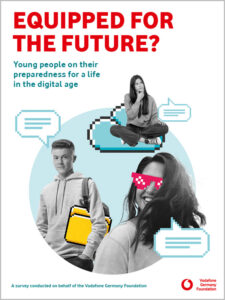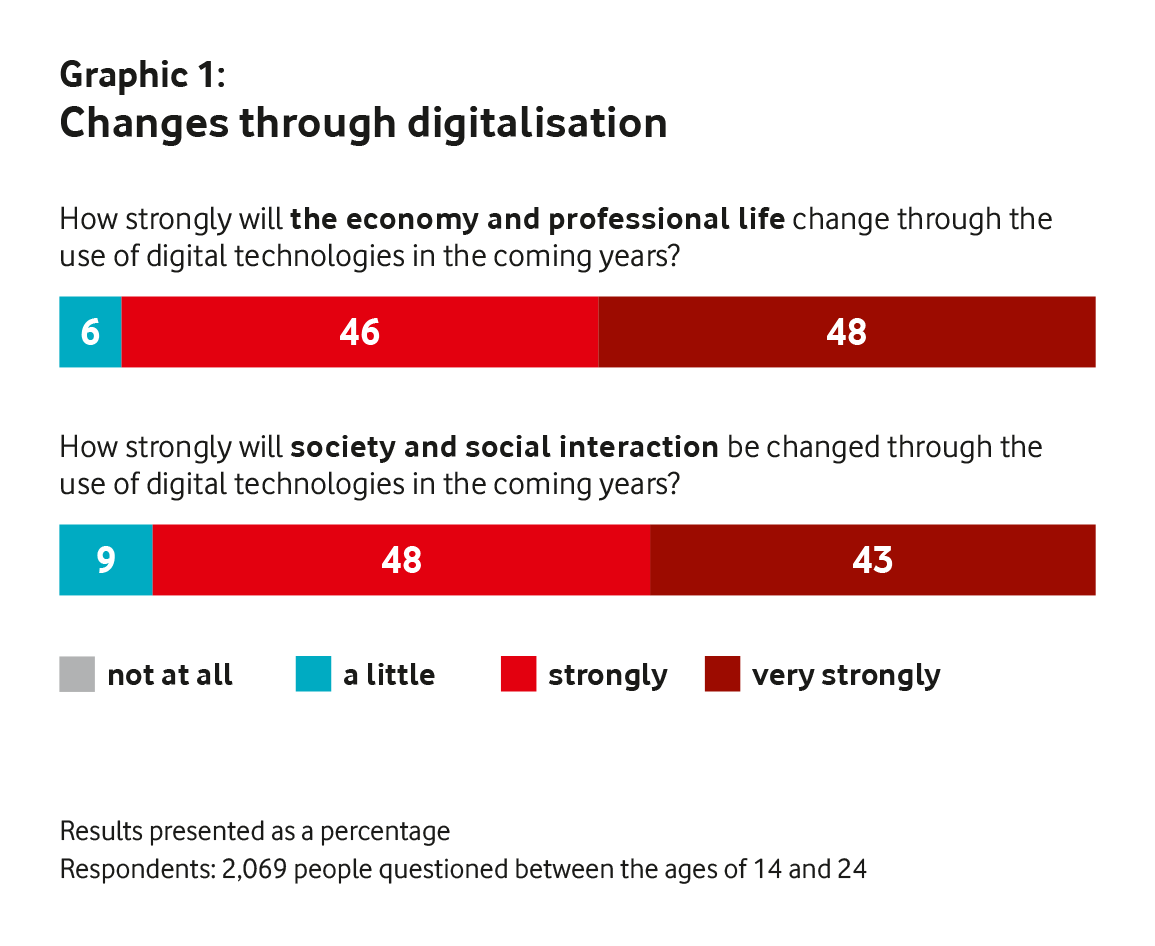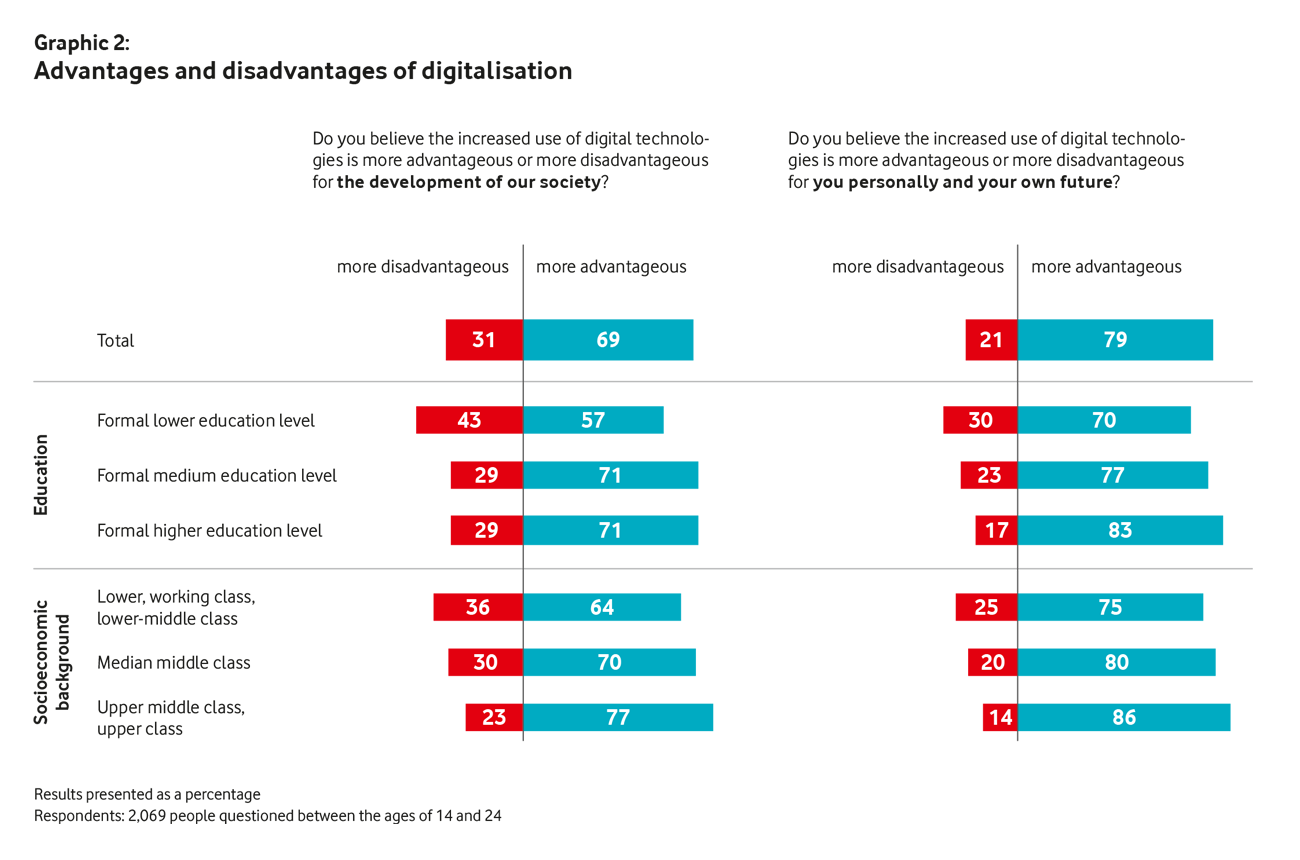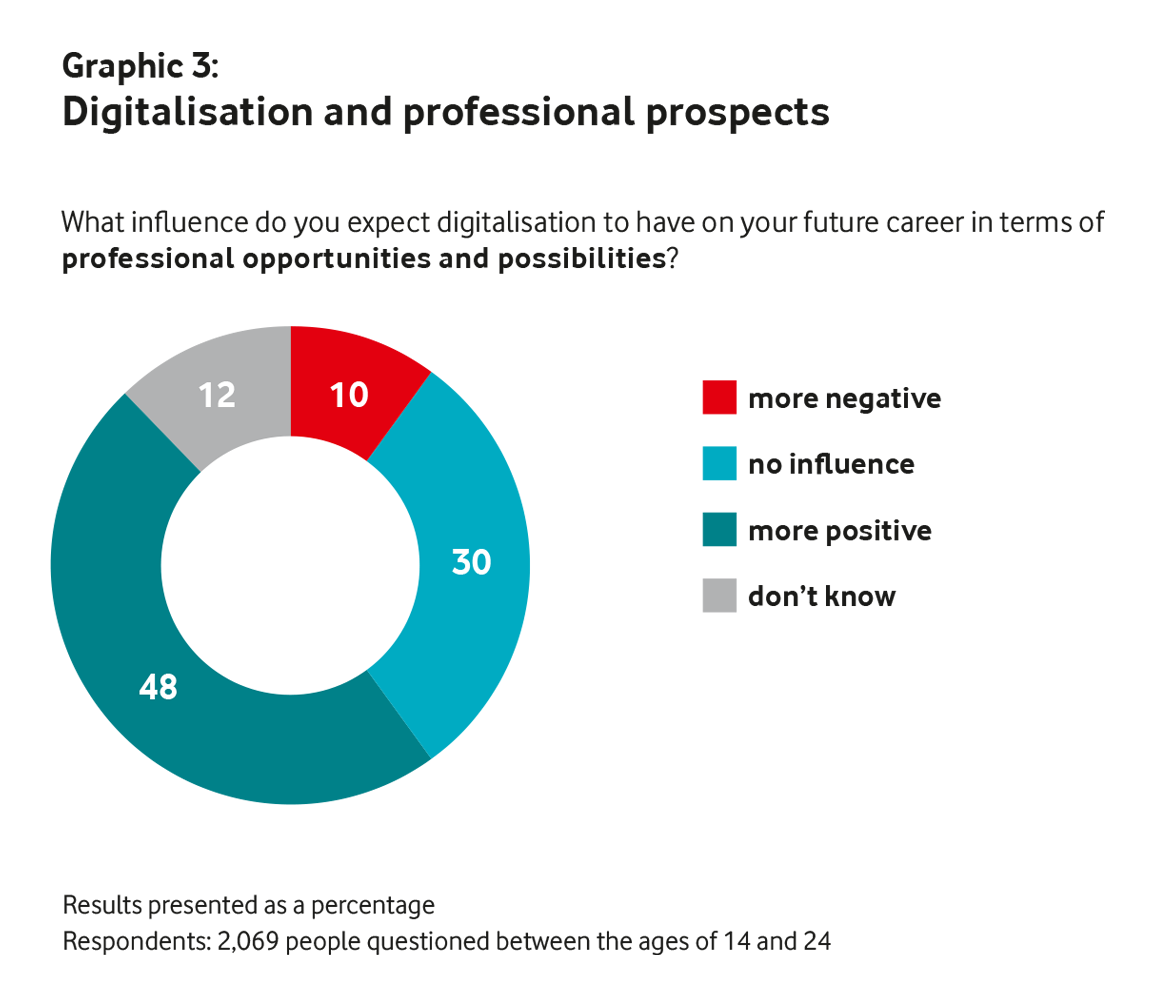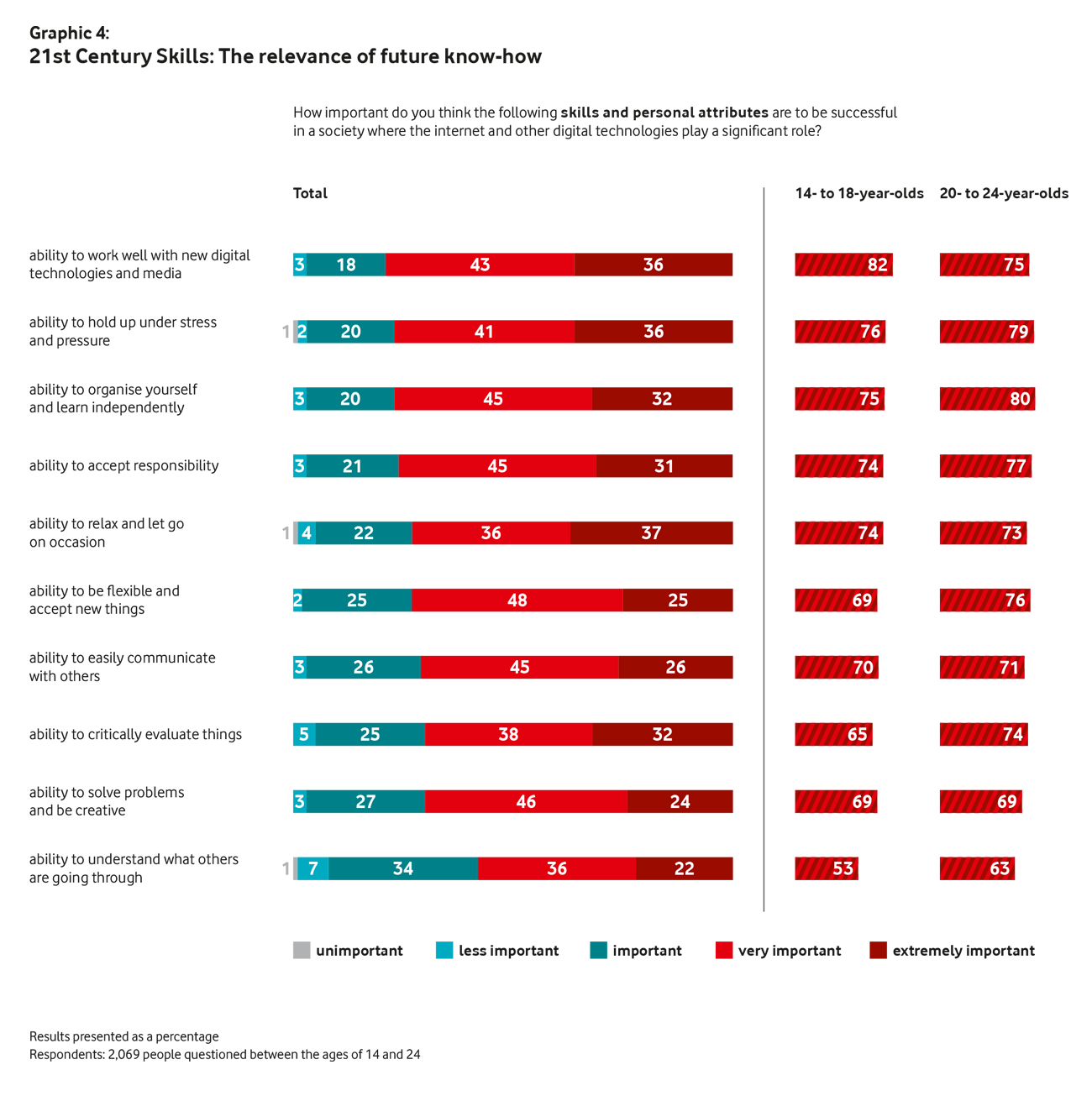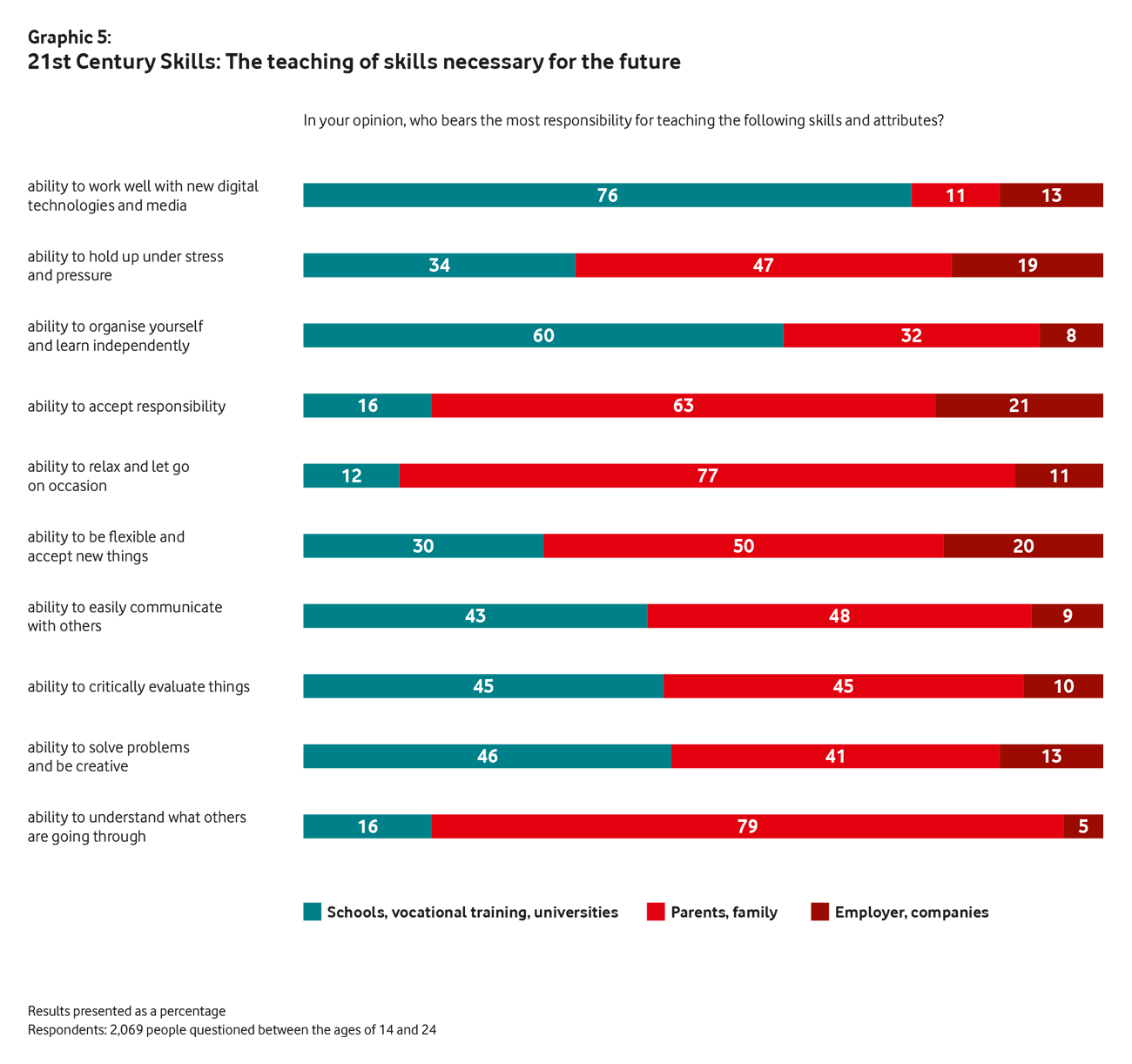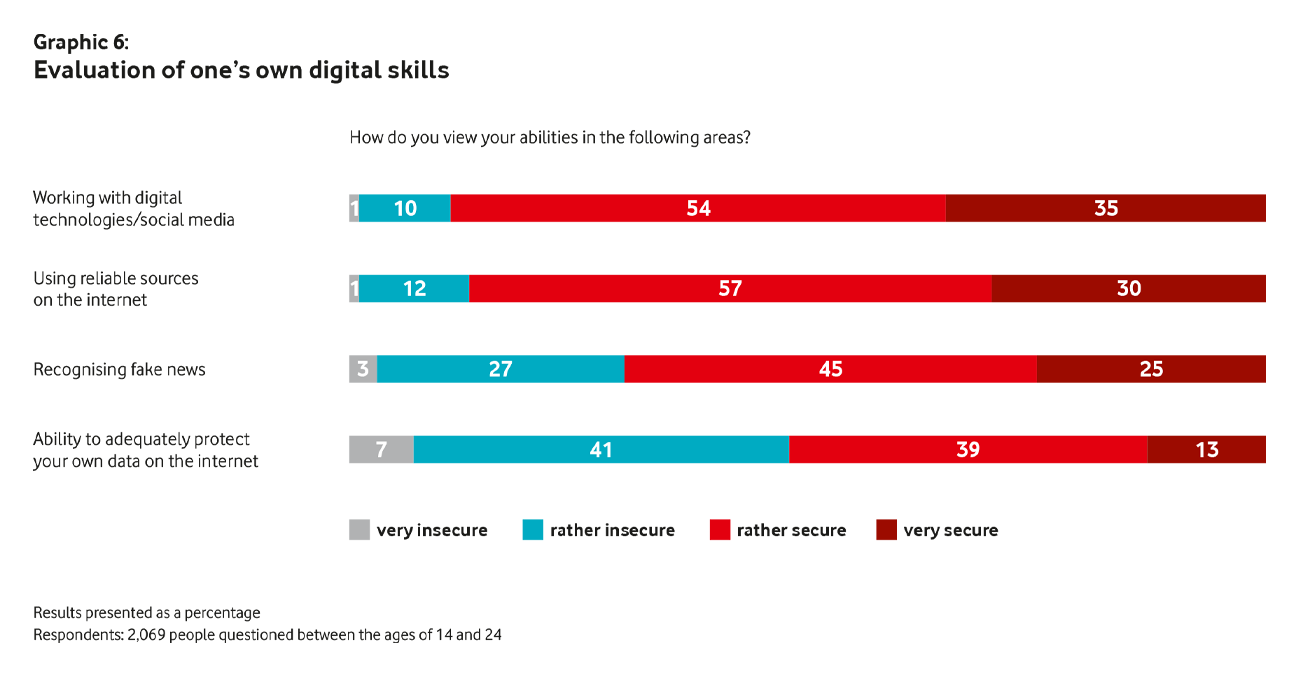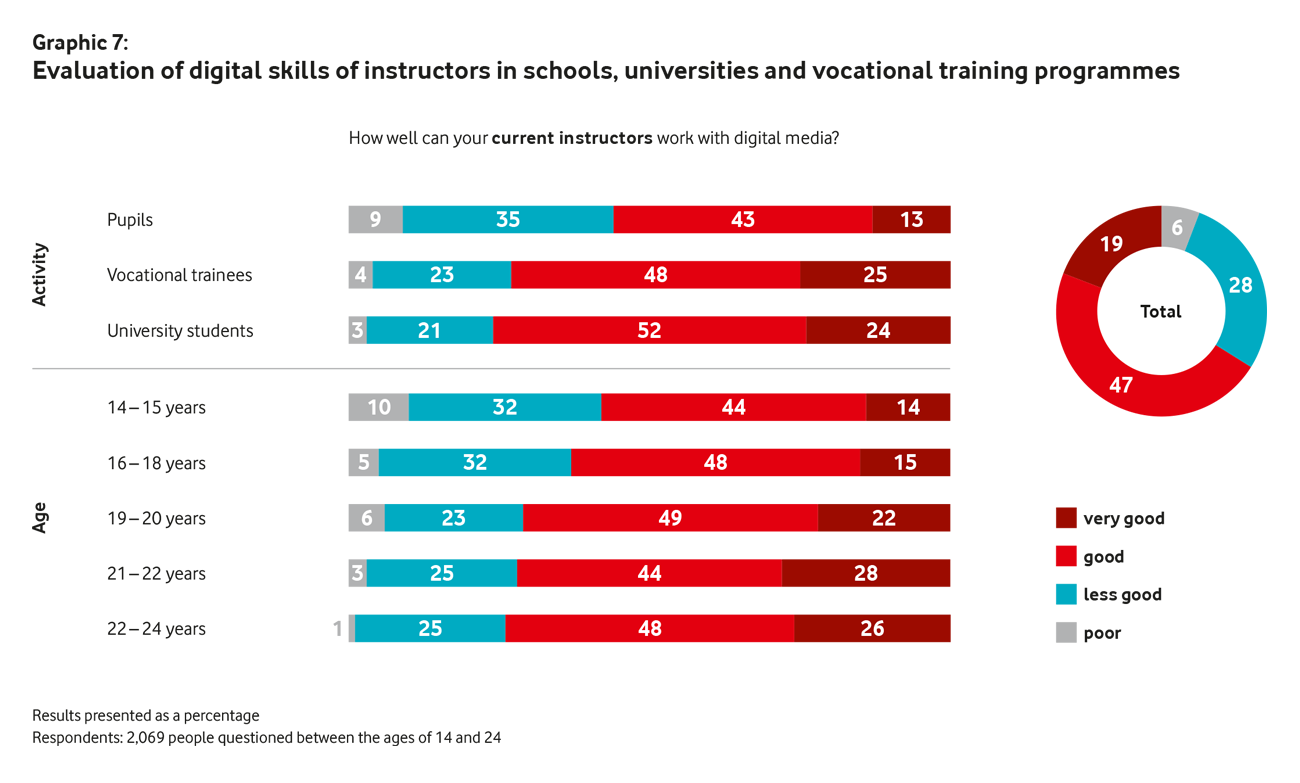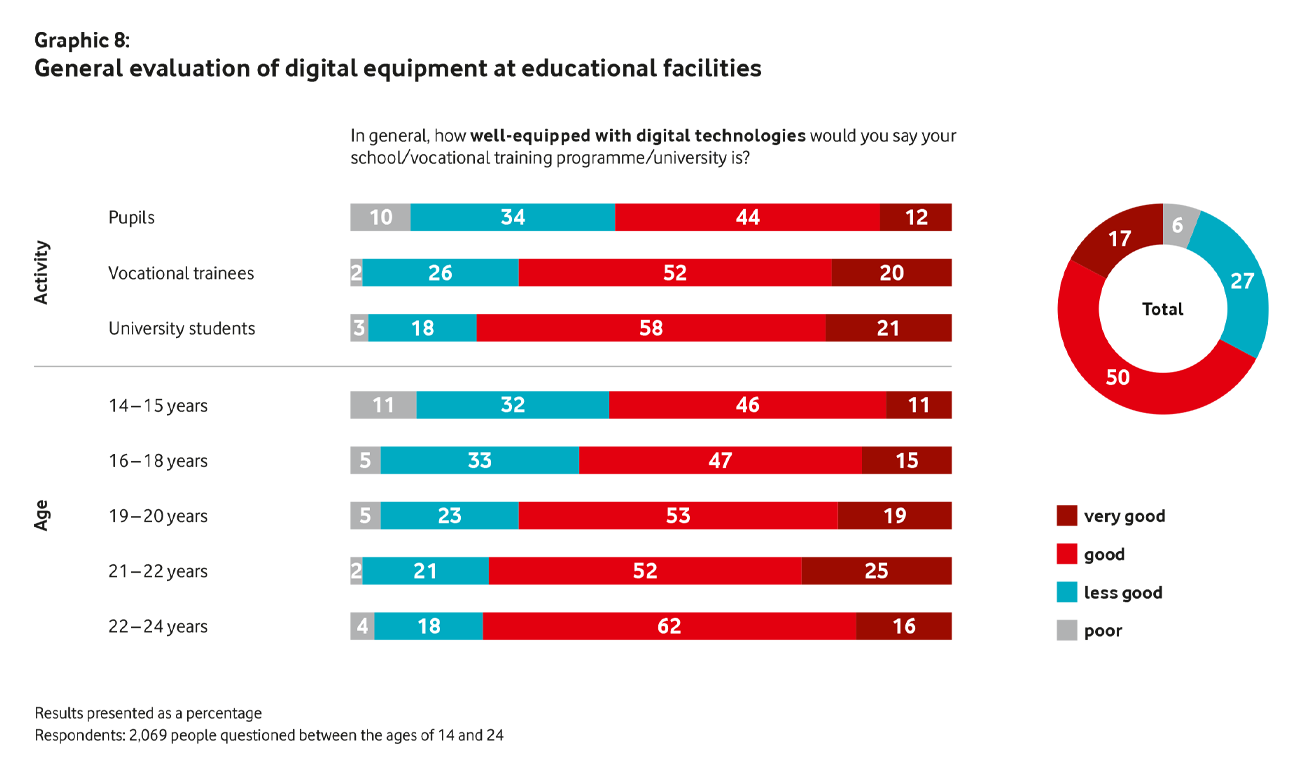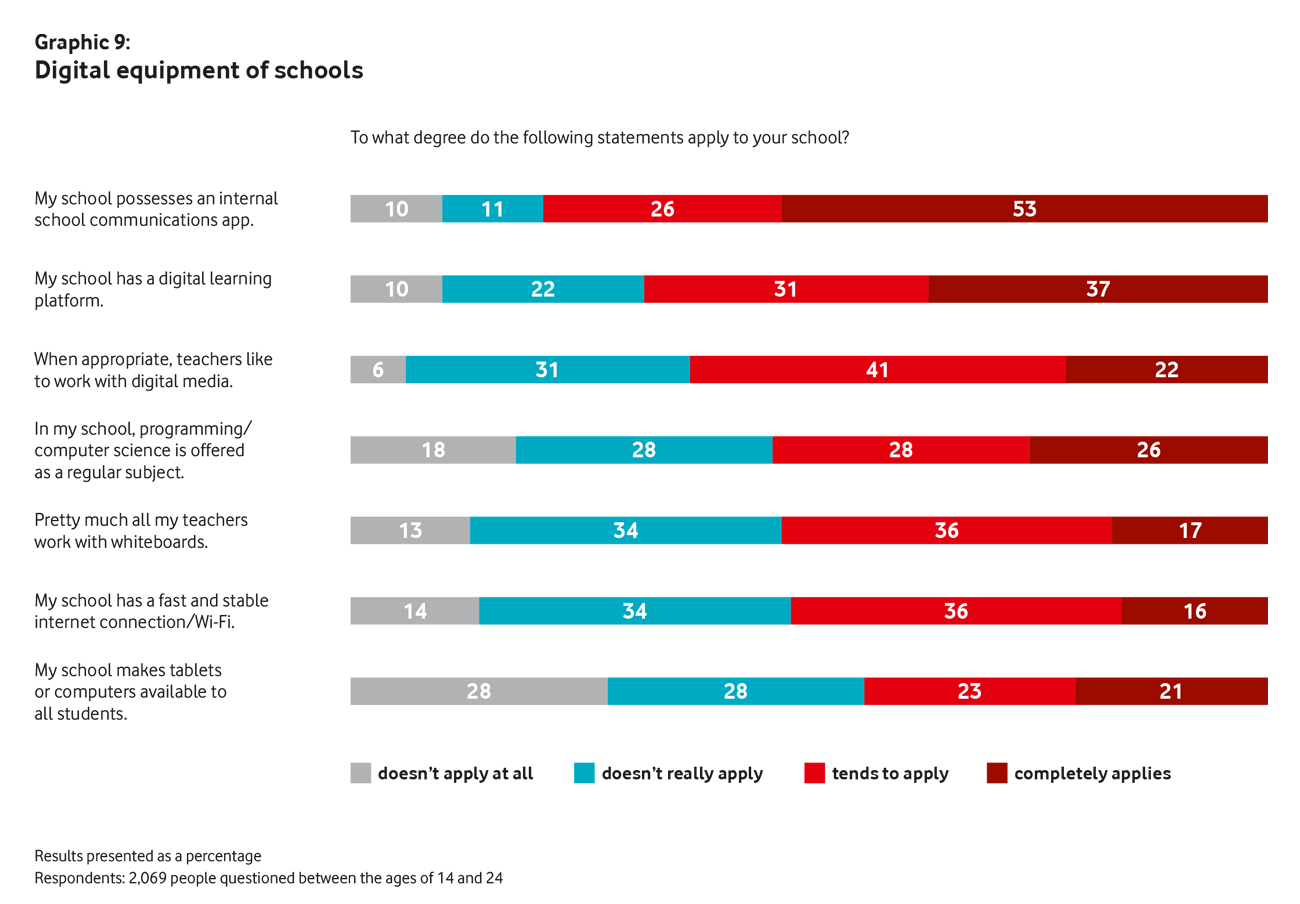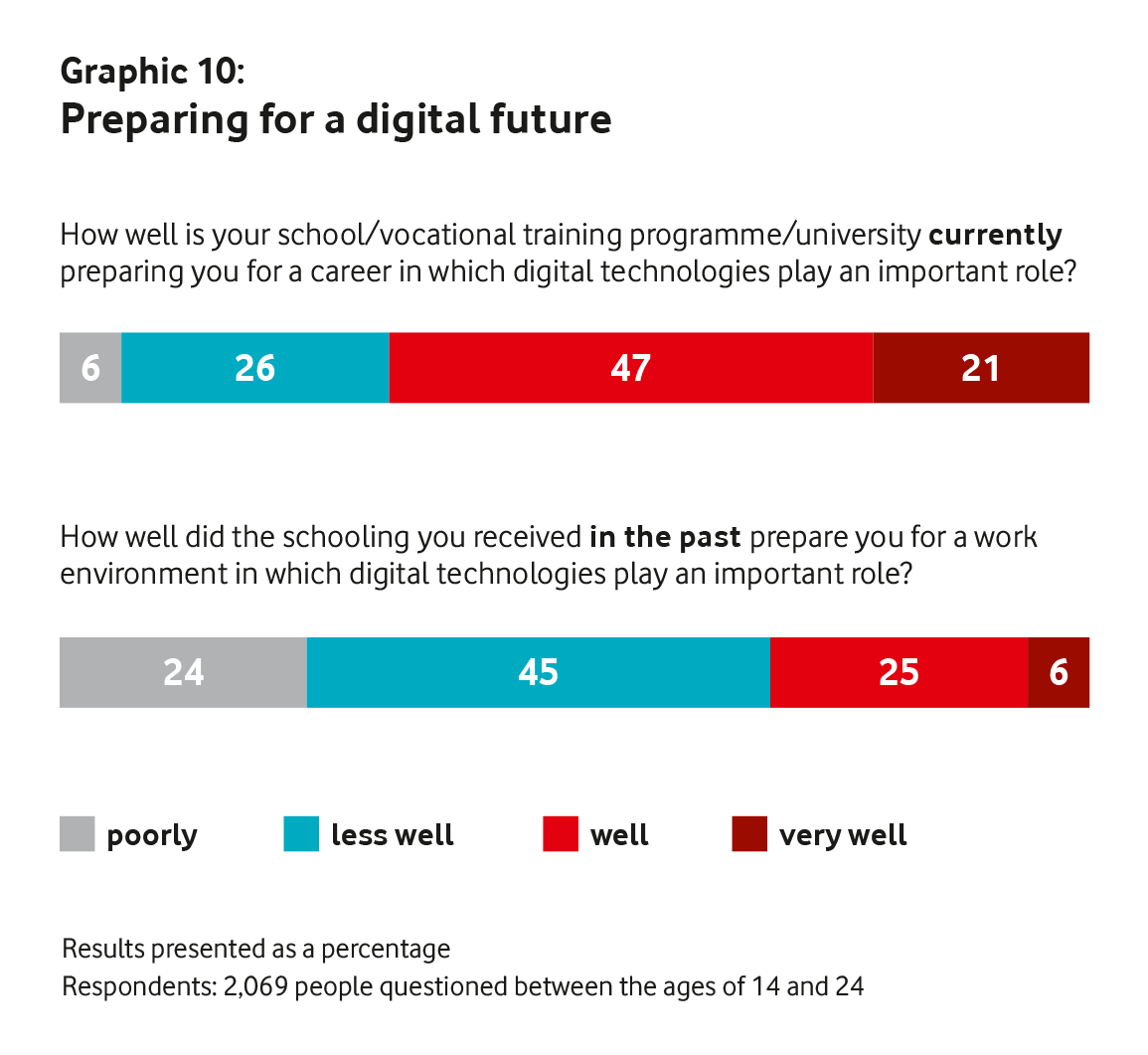April 2023
Youth study on digital education in Germany: Around 70 percent of those entering the workforce do not feel fit for the digital world of work
- Representative survey by Vodafone Germany Foundation: Computer science is a regular school subject for only 54 percent of students surveyed, aged 14 and over
- At the same time, 79 percent of all young people see digital skills as particularly important for the future
- More than two thirds of young people see more advantages than disadvantages in digitalisation for society
Young people from all social classes have a positive outlook on the digital future: 69 percent expect digitalisation to trigger positive social developments and 79 percent see advantages for their personal development. In addition, 79 percent rate digital skills as indispensable for the future. However, when it comes to preparing for the digital future, especially young professionals feel ill-prepared. Fittingly, more than half of the students rate the digital equipment at schools as inadequate. These are the results of a representative study commissioned by the Vodafone Germany Foundation, for which more than 2,000 young people between the ages of 14 and 24 in Germany were surveyed.
Harnessing the optimism of young people
“Young people look forward to the digital future with hope and recognise the importance of digital skills. Unfortunately, schools are not yet teaching these sufficiently, according to the results of our study,” explains Matthias Graf von Kielmansegg, Managing Director of the Vodafone Germany Foundation. “In particular, young adults who have just started their careers do not feel sufficiently fit to live and work in the digital world. This should be a wake-up call for us.”
Young people are optimistic about the digital future and recognize the importance of digital skills. Unfortunately, schools are not yet imparting these skills adequately, as our study has shown. In particular, young adults who have just started their careers do not feel sufficiently prepared for life and work in the digital world. This should be a wake-up call for us.
Matthias Graf von Kielmansegg
Managing Director of the Vodafone Foundation Germany
Young professionals criticise preparation for the digital world of work
68 percent of young people in school or training rate the preparation for a future in which digital technologies play an important role as very good or good. The verdict is different for young people who already have a degree or are in working life. Here, 69 percent rate the preparation during their school years as insufficient in retrospect. “If we teach young people resilience, motivation, a growth mindset and effective learning strategies, they will be prepared for jobs that do not yet exist, for technologies that have not yet been developed and for social challenges that we cannot yet imagine,” comments Prof. Andreas Schleicher, Director of Education at the OECD.
Schools not sufficiently equipped to teach digital skills
Most young people see their parents as responsible for teaching them social and emotional skills for the future, for example qualities such as empathy (79 percent) and a sense of responsibility (63 percent). Schools and universities, on the other hand, are seen as responsible for teaching pre-vocational skills such as the use of digital technologies (76 percent) and responsible organisation (60 percent).
The schools are not sufficiently prepared for this, according to the opinion of the respondents. Just under half (56 percent) of 14- to 24-year-olds rate the digital equipment in schools as very good or good overall. Computer science is a regular school subject for only 54 percent of those surveyed, and only 44 percent report that tablets or computers are freely available to all pupils.
Uncertainty about protecting one’s own data online
Young people feel prepared to deal with fake news: 70 percent are very sure or sure that they can recognise fake news, while 30 percent have doubts. The situation is different when it comes to the competence to adequately protect one’s own data on the internet: 52 percent of 14 to 24-year-olds feel safe, 48 percent are rather unsure about data protection issues on the internet.
If we teach young people resilience, motivation, a growth mindset and effective learning strategies, they will be prepared for professions that do not yet exist, for technologies that have not yet been developed, and for social challenges that we cannot yet imagine.
Prof. Dr. Andreas Schleicher
Director of Education at the OECD
Youth study on digital education in Germany
Methodology of the study
The survey was conducted by the opinion research institute Infratest dimap on behalf of the Vodafone Germany Foundation. The population for the survey consisted of 2,069 German-speaking young people between the ages of 14 and 24 (1,037 14- to 19-year-olds and 1,032 20- to 24-year-olds) in private households in Germany. The sample was drawn as a quota sample. The quotas were designed in such a way that the sample corresponds to the structure of the population in the essential characteristics.

